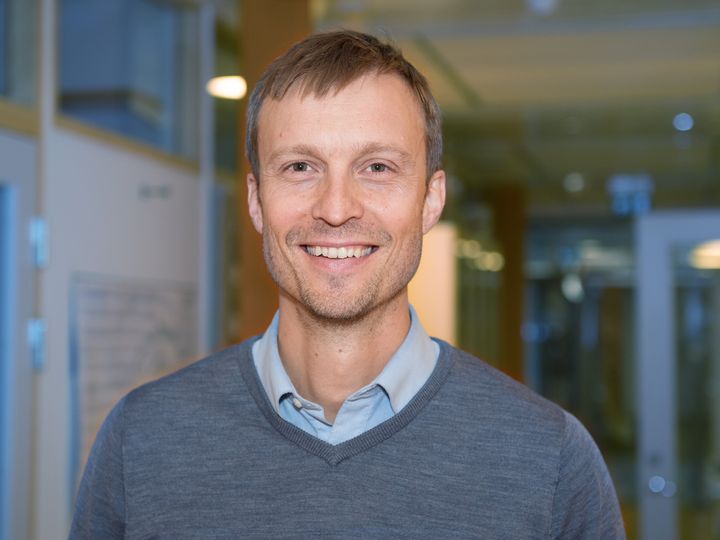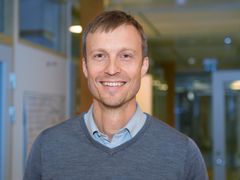Children’s lung capacity improved in cleaner air
As air pollution in Stockholm has decreased, so has the lung capacity of children and adolescents has improved, a new study published in the European Respiratory Journal reports. The researchers from Karolinska Institutet consider the results important, since the lung health of the young greatly affects the risk of their developing chronic lung diseases later in life.

”Fortunately, we've seen a decrease in air pollutants and therefore an increase in air quality in Stockholm over the past 20 years,” says the study's last author Erik Melén, paediatrician and professor at the Department of Clinical Research and Education, Karolinska Institutet. ”We therefore also wanted to examine if the lungs of children also improved during this period.”
The adverse impact of airborne pollutants on children's lung health are well-documented. According to the researchers, however, how changes in air quality can affect lung development in children and adolescents is less studied.
4,000 children included
The study used a cohort from the BAMSE project, in which researchers have been following some 4,000 individuals born between 1994 and 1996. The children were given a questionnaire to answer and spirometric examinations to test their lung function at the ages of 8, 16 and 24.
The researchers estimated, above all, concentrations of airborne pollutants, mostly from traffic, at sites where the participants lived from birth until early adulthood.
In general, air pollution was around 40 per cent lower in Stockholm between 2016 and 2019 than it was between 2002 and 2004. At some locations, such as Hornsgatan on Södermalm, it had decreased by 60 per cent; at others, there was no significant difference in air quality.
”When we compare the individuals living in the areas in which air quality has improved and those in which it hasn't, we find that lung function improved by a few per cent in the participants in the young adult age bracket,” says the study's first author Zhebin Yu, postdoc researcher at the Institute of Environmental Medicine, Karolinska Institutet. ”But above all we could see a 20 per cent lower risk of having significantly impaired lung function.”
The researchers conclude that lower exposure to airborne pollutants, even at relatively low levels, is associated with improvements in the development of lung function from childhood to early adulthood.
Lung health in childhood affects adulthood
The results are important, says Professor Melén, since optimal lung development during childhood is a powerful determinant of good health in adulthood.
”It is ultimately of great importance since the lung function that children and adolescents develop as they grow up persists into adulthood,” he explains. ”If you have reduced lung function as an adult, you run a greater risk of chronic lung diseases like COPD, cardiovascular disease and premature death. So by improving air quality, we reduce the likelihood of children developing chronic diseases later in life.”
Previous studies from the BAMSE project have shown that lung function growth can both improve and deteriorate over time, and these new results show that air pollution can play an important part in this.
”Airborne pollutants that are by nature persistent are a great worry and our study clearly indicates that efforts to improve air quality have paid off, with quantifiable improvements in child and adolescent health,” says Professor Melén.
The next step is to examine potential advantages of cleaner air for lung diseases like asthma, bronchitis and prodromal COPD and for cardiometabolic diseases such as cardiovascular disease and type 2 diabetes.
The study was conducted in collaboration with SLB-analys, Stockholm South (Söder) General Hospital and Region Stockholm's Centre for Occupational and Environmental Medicine, and was financed by the European Research Council, the Swedish Research Council, the Swedish Heart-Lung Foundation and the Swedish Research Council for Health, Working Life and Welfare.
VIDEO: Download a filmed interview with professor Erik Melén here
Publication: ”Associations of improved air quality with lung function growth from childhood to adulthood: The BAMSE study”, Zhebin Yu, Simon Kebede Merid, Tom Bellander, Anna Bergström, Kristina Eneroth, Antonios Georgelis, Jenny Hallberg, Inger Kull, Petter Ljungman, Susanna Klevebro, Massimo Stafoggia, Gang Wang, Göran Pershagen, Olena Gruzieva, Erik Melén, European Respiratory Journal, online 23 February, doi: 10.1183/13993003.01783-2022
For more information, contact: Erik Melén, professorDepartment of Clinical Research and Education, Karolinska InstitutetPhone: +46 8 52 48 75 08E-mail: erik.melen@ki.se
Zhebin Yu, postdoc researcherInstitute of Environmental Medicine, Karolinska InstitutetPhone: +46 73 62 90 05 8E-mail: zhebin.yu@ki.se
Contacts
Contact the Press Office and download photo: ki.se/pressroom
Images
Karolinska Institutet (http://ki.se/en) is one of the world’s leading medical universities. Our vision is to advance knowledge about life and strive towards better health for all. Karolinska Institutet accounts for the single largest share of all academic medical research conducted in Sweden and offers the country’s broadest range of education in medicine and health sciences. The Nobel Assembly at Karolinska Institutet selects the Nobel laureates in Physiology or Medicine.
Subscribe to releases from Karolinska Institutet - English
Subscribe to all the latest releases from Karolinska Institutet - English by registering your e-mail address below. You can unsubscribe at any time.
Latest releases from Karolinska Institutet - English
New method reveals how the brain and inner ear are formed3.4.2025 20:00:00 CEST | Pressmeddelande
Researchers at Karolinska Institutet have developed a method that shows how the nervous system and sensory organs are formed in an embryo. By labelling stem cells with a genetic ‘barcode’, they have been able to follow the cells’ developmental journey and discover how the inner ear is formed in mice. The discovery, published in Science, could provide important insights for future treatment of hearing loss.
Fluoride in drinking water is associated with impaired childhood cognition7.3.2025 15:30:00 CET | Pressmeddelande
Elevated concentrations of fluoride can occur in well water, and in some countries, it is added to drinking water to counteract caries in the population. A study from Karolinska Institutet in Sweden now supports a few previous studies indicating that exposure to fluoride during the fetal stage or early childhood may impair cognition in children. The study is published in the journal Environmental Health Perspectives.
Children with ARFID face increased risk of disease17.2.2025 17:00:00 CET | Pressmeddelande
Children with avoidant restrictive food intake disorder (ARFID) have an elevated risk of developing psychiatric and physical conditions, a new study from Karolinska Institutet published in JAMA Pediatrics reports. The study highlights the importance of early identification to improve care of these children.
Preterm babies receive insufficient pain management27.1.2025 15:29:17 CET | Pressmeddelande
A large proportion of babies born very early need intensive care, which can be painful. But the healthcare system fails to provide pain relief to the full extent. This is shown by the largest survey to date of pain in neonatal care, now published in the journal Pain.
New study paves way for immunotherapies tailored for childhood cancers20.1.2025 17:00:00 CET | Pressmeddelande
Researchers at Karolinska Institutet and the Astrid Lindgren Children’s Hospital in Sweden have determined how children’s immune systems react to different kinds of cancer depending on their age. The study, which is published in the journal Cell, reveals significant differences between the immune response of children and adults, and has the potential to lead to new tailored treatments for children with cancer.
In our pressroom you can read all our latest releases, find our press contacts, images, documents and other relevant information about us.
Visit our pressroom

